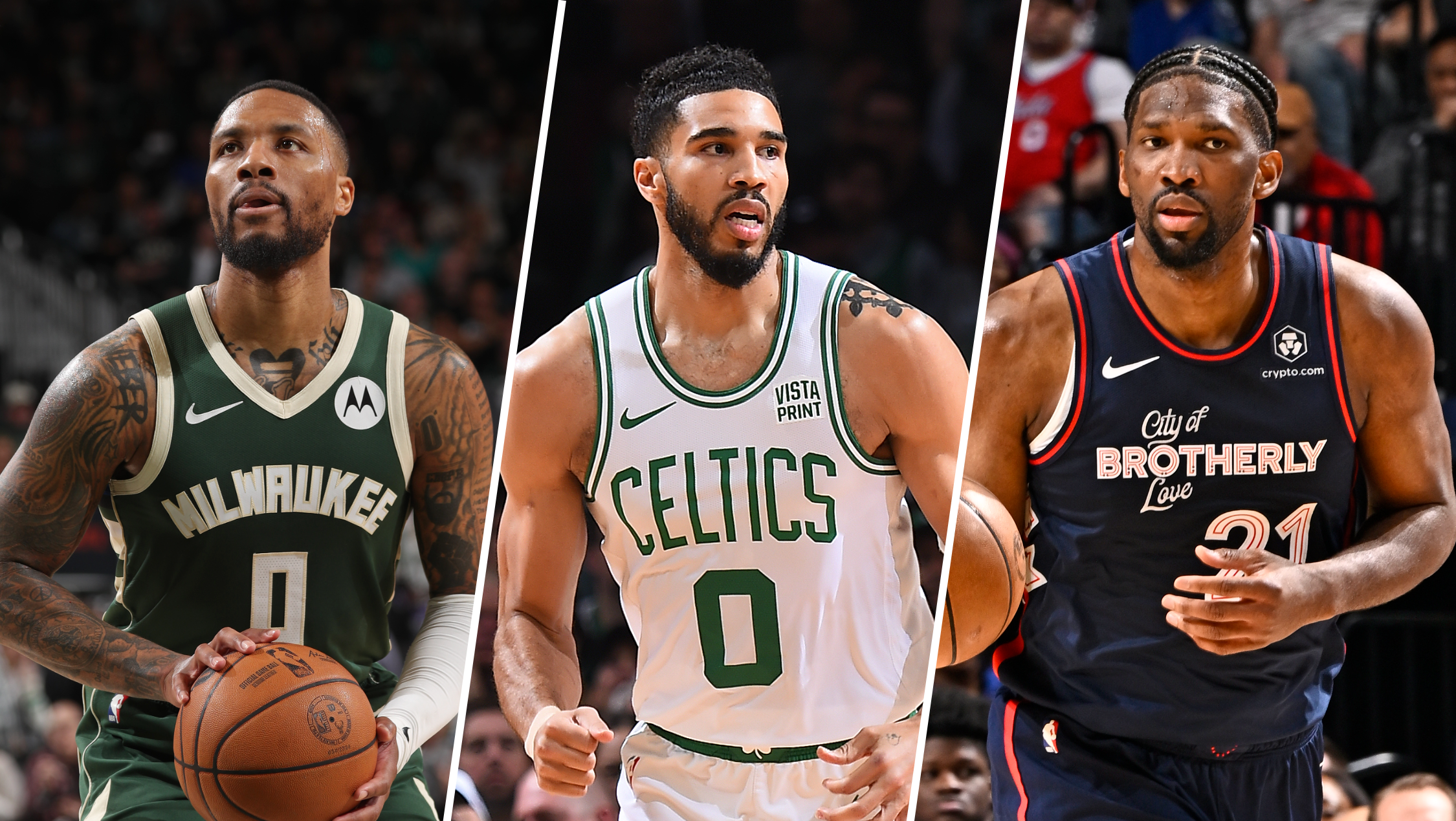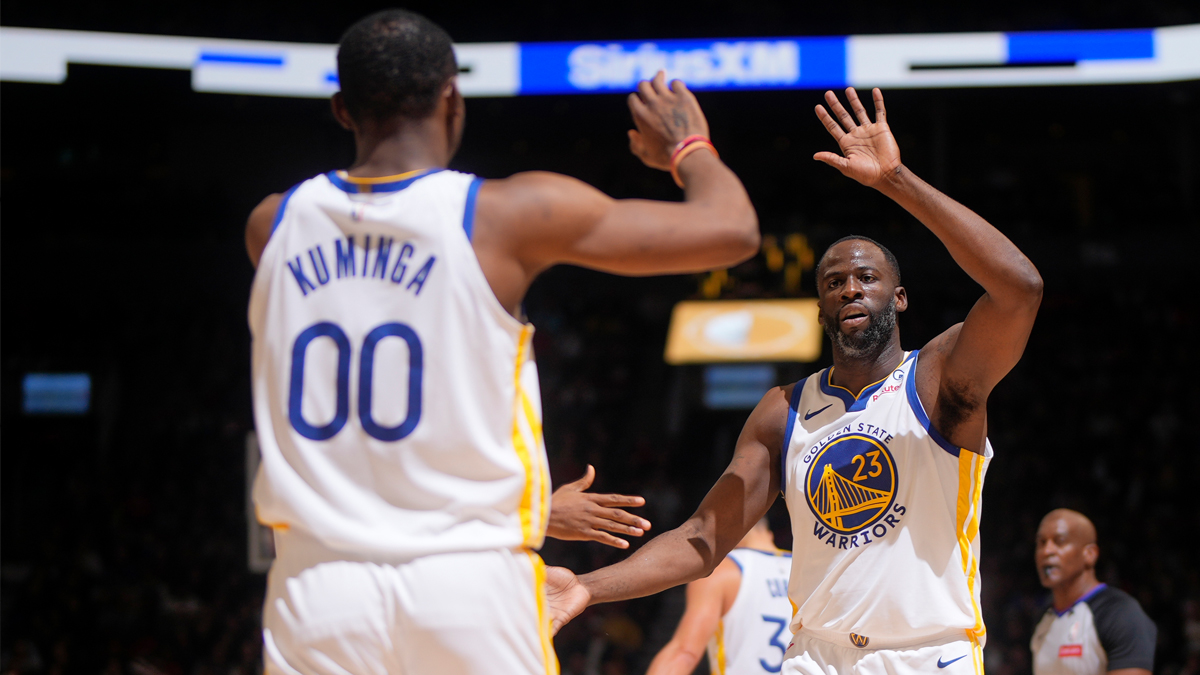Programming note: Watch "Race in America: A Candid Conversation" on Friday, Aug. 7 on NBC Sports Bay Area after "Giants Postgame Live."
And on the seventh day, the NBA confirmed its commitment by digging into its deep pockets.
While MLB and the NFL each use one hand to support racial equality and the other as a hollow shield against the raging coronavirus pandemic, the NBA is using both hands to show how it’s done.
Stay in the game with the latest updates on your beloved Bay Area and California sports teams! Sign up here for our All Access Daily newsletter.
The left hand is deflecting COVID-19 so well the league has announced zero positive tests, and the right simultaneously is focused on making America fairer to all.
The NBA Board of Governors announced Wednesday, the seventh day of its restart, that, in alliance with the National Basketball Players Association, it is launching the NBA Foundation for the explicit purpose of empowering the Black community. Furthermore, the league is committing $300 million in initial funding -- $30 million for each of the next 10 years.
In this time of global awakening, with scores of major corporations hanging signs and issuing statements, often utilizing the phrase “Black Lives Matter,” the NBA is taking action.
This level of support is a requirement for real progress and draws strong approval from those long committed to the cause, such as Ebro Darden, global editorial director of hip-hop and R&B for Apple Music and a panelist on “Race in America: A Candid Conversation” on Friday night on NBC Sports Bay Area.
NBA
"Is your corporation that you work for actively working to find ways to connect with communities that are underrepresented at your corporation, so that you can train, engage with, and hire individuals from that community, and specifically the black community?” said Darden, who also hosts “Ebro In The Morning” on WQHT-FM in New York. “I know at Apple, that's the conversation we're having all the time. And it goes all the way up to the top leaders, who are a part of the conversation, not only creating internal executions but creating external execution.”
[RACE IN AMERICA: Listen to the latest episode]
It’s one thing for a corporation to push out a BLM hashtag, quite another for them to pledge shifting profits toward inclusion and racial justice. There is, after all, quite a difference between brand activism and meaningful action, between the message a company promotes and its day-to-day internal practices.
A little more than a week after George Floyd died under the knee of a Minneapolis police officer, JPMorgan Chase CEO Jamie Dimon was photographed kneeling alongside employees at one branch of the giant bank. That same bank has a history of executives making racist comments -- and was accused last week by a Black former financial adviser, Ricardo Peters, who claims he routinely experienced racial discrimination at the company.
Though Nike, for example, was prescient in its decision to fully support the peaceful protest of former 49ers quarterback Colin Kaepernick, using ads and billboards to further raise his profile, an examination of public records in 2019 revealed the company has more than 300 vice presidents around the world -- and less than 10 percent were Black.
The company in June issued a statement vowing to do better, announcing it would direct $40 million over the next four years toward the Black community while also promising to “continue our focus on being more representative of our consumers.”
That’s the long-term goal. It’s admirable.
Is there any reason why companies riding the current wave of supportive platitudes should be trusted?
“I wouldn’t say ‘trust’ is a word you probably want to use,” Darden said. “I would say the word is probably ‘accountability.’ Can we hold them accountable to those words? What actions, as individuals, whether we work at NBC or whether we work at Apple or whatever corporations we work for, can we expect? And if you work for these corporations that had something to say, what actions can you take on, internally, to hold these corporations accountable to their words?"
“It starts with onboarding,” he continued. “Are our people who are Black being onboarded into corporations and being given a career growth path so that they can become the next executives at this corporation? Are they being given those opportunities?”
They are, for the most part, in the NBA. Moreover, the NBA Foundation is designed to stimulate the economies of underserved areas and create opportunities for those within it. In short, financially support businesses designed to bring racial balance to the job market.
That the NBA consulted with the NBPA indicates that the ownership levels of all 30 teams were willing to listen and then respond.
[RELATED: NBA welcomes Breonna Taylor as new teammate during restart]
With Michael Jordan as the only Black governor (formerly owner) in the NBA, it’s apparent the league has miles to go regarding diversity at the top. With increasingly outspoken superstars expressing a desire to join that select group -- and teams recently creating positions designed to generate diversity -- it’s on the horizon.
The NBA doesn’t always get it right. But its management of COVID-19 within the bubble -- thus far -- and its response in the executive offices are light years ahead of its major-sports competitors.


